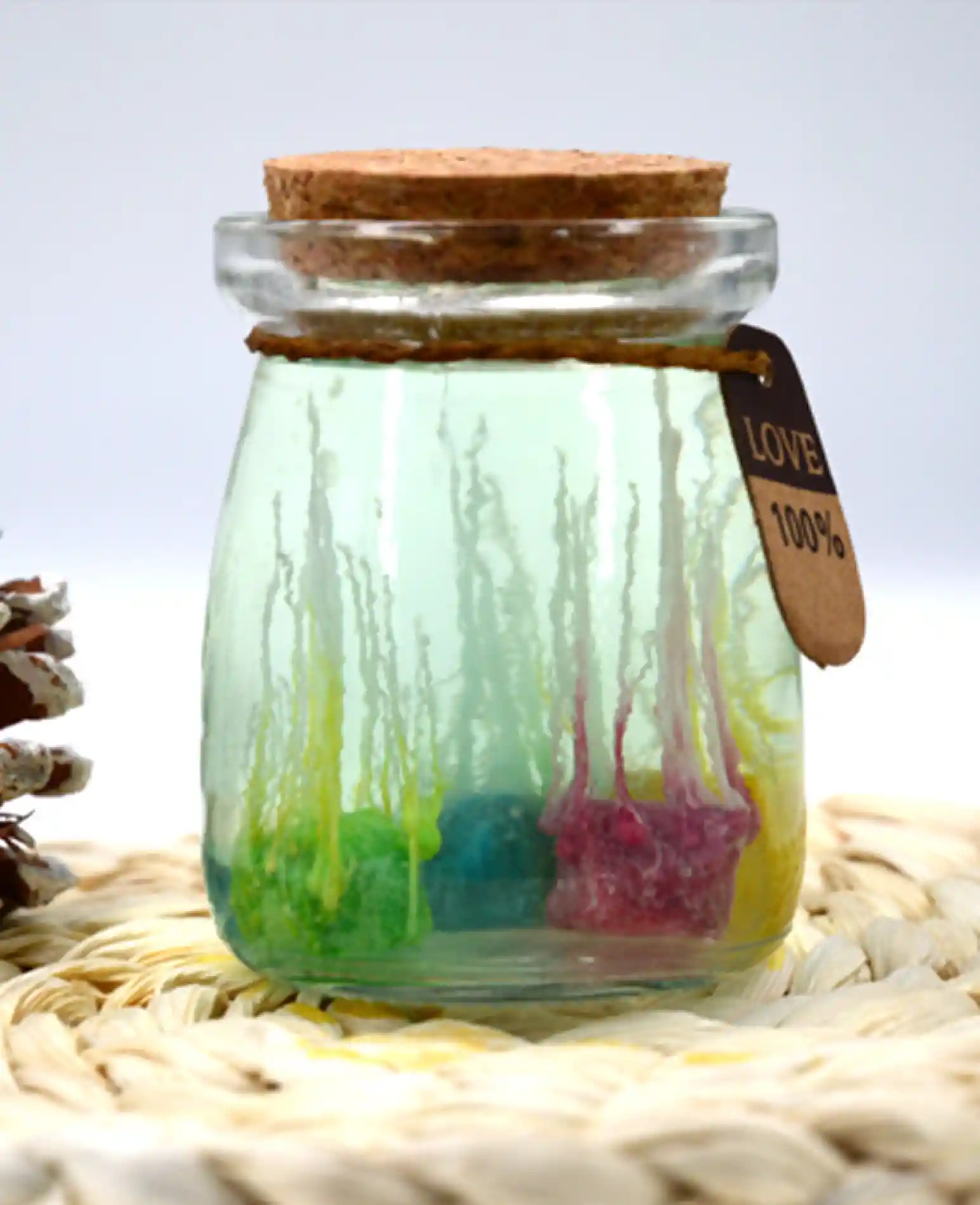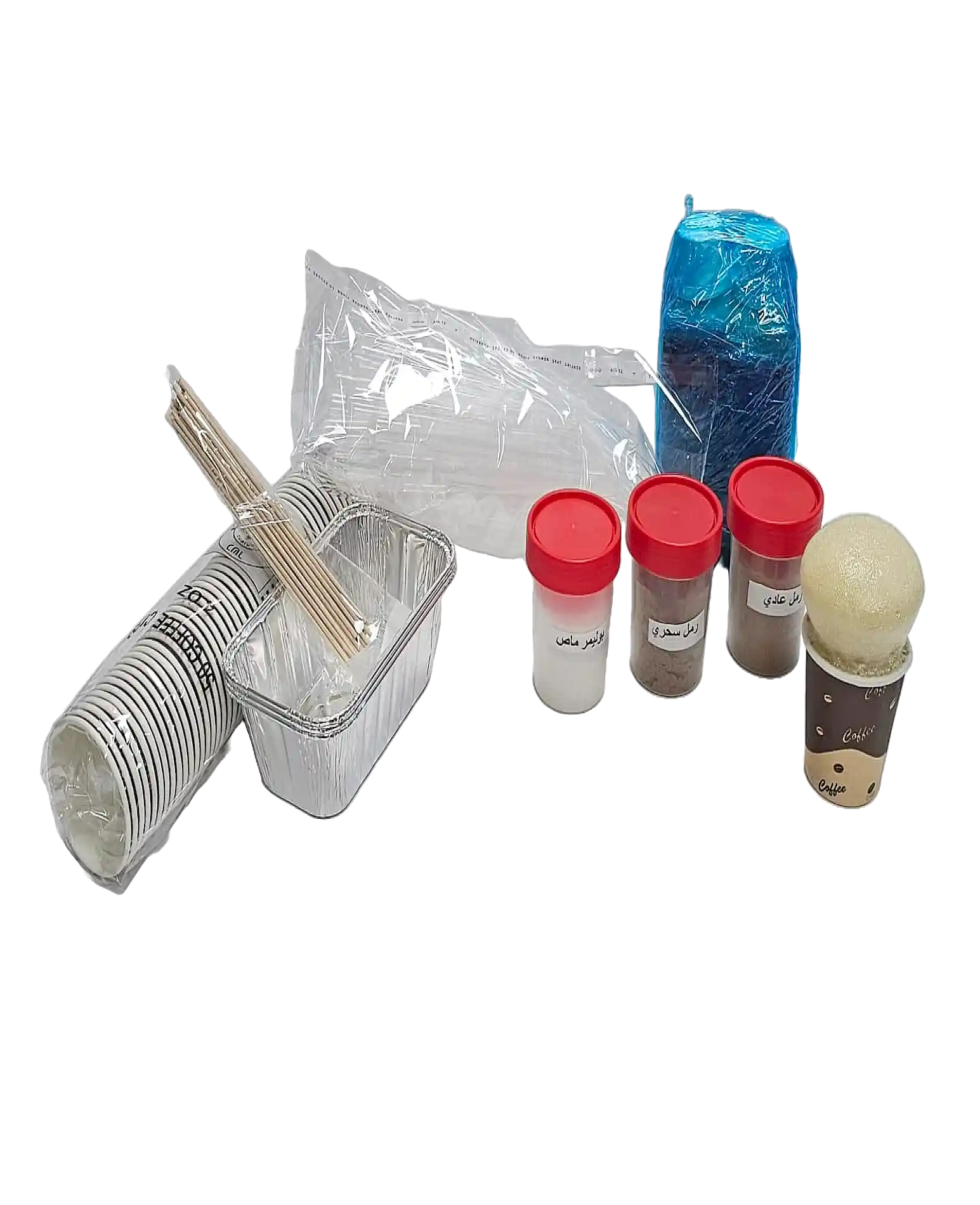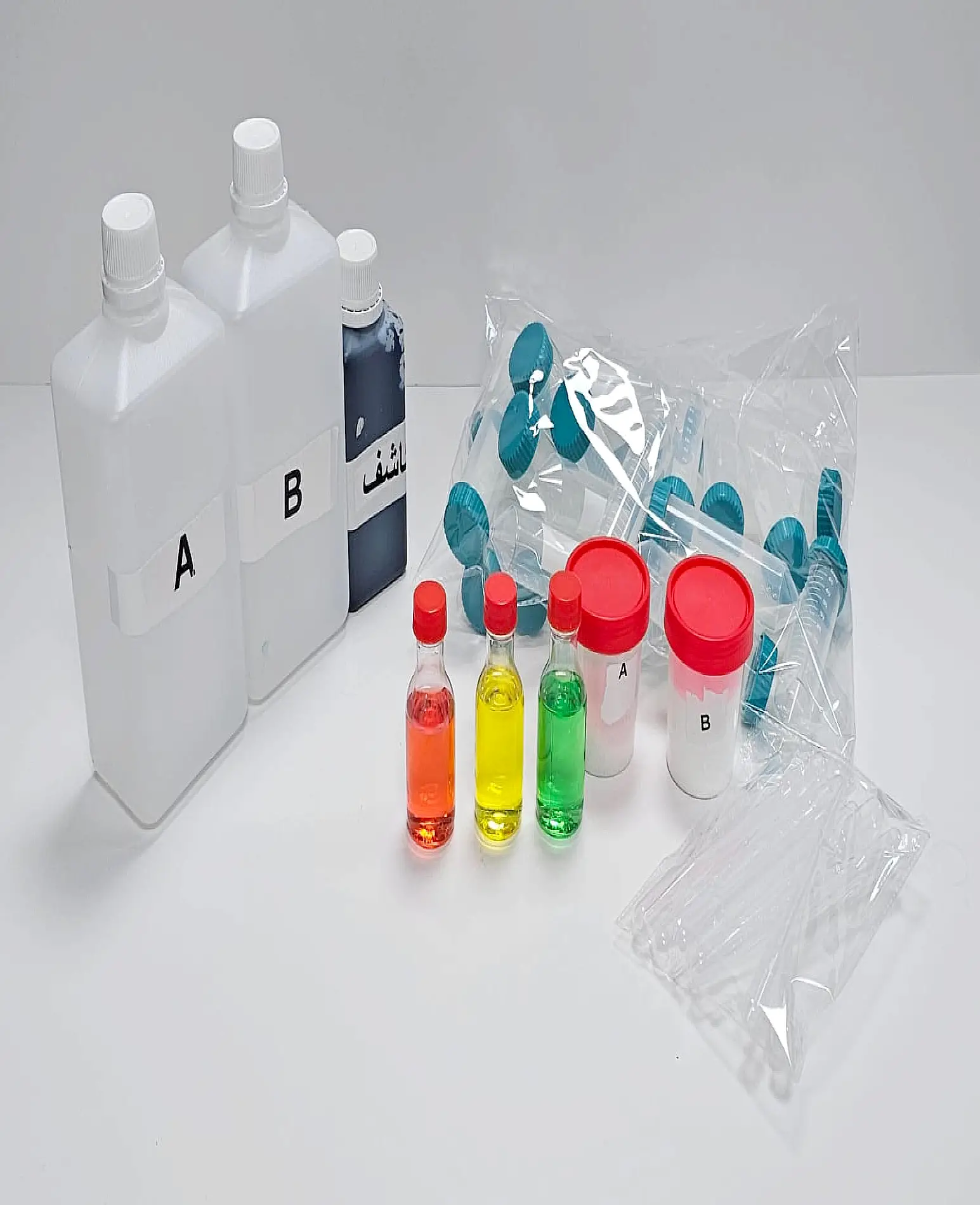Chemical Garden Kit for Groups
Chemical Garden Kit for Groups: Growing Chemistry!
What is a Chemical Garden?
The chemical garden is a fascinating science experiment where students can observe the formation of colorful crystals that look like branching plants – all happening inside a transparent bottle!
This experiment demonstrates how simple chemical reactions can create complex structures that mimic natural growth.
Learning Objectives:
- Illustrate processes of precipitation and formation of insoluble compounds
- Learn about semi-permeable membranes and osmotic pressure
- Understand the connection between chemistry and biology (mimicking natural systems)
What the Kit Includes (Group Version):
- Transparent glass bottle (20–50 ml)
- Distilled water
- Liquid glass (sodium silicate – Na₂SiO₃)
- Metal salts:
- Copper sulfate (CuSO₄) – blue crystals
- Copper chloride (CuCl₂) – green or blue crystals
- Calcium chloride (CaCl₂)
- Gloves, pipettes, and mixing tools
- Instruction sheet for each group
Scientific Explanation:
When a metal salt comes into contact with sodium silicate solution, an insoluble metal silicate forms around the salt crystal as a thin membrane.
This membrane is semi-permeable, allowing water to enter and create internal osmotic pressure, which pushes the solution out – causing new "branches" to grow. This process repeats and builds complex, plant-like structures.
Broader Applications:
Though primarily educational, this experiment simulates real-world processes such as:
- Formation of mineral structures in deep-sea hydrothermal vents
- Salt precipitation in extreme environments
- Research into smart materials and semi-permeable membranes
Who Is It For?
- Elementary and middle schools
- Science centers and clubs
- Summer camps and open labs



